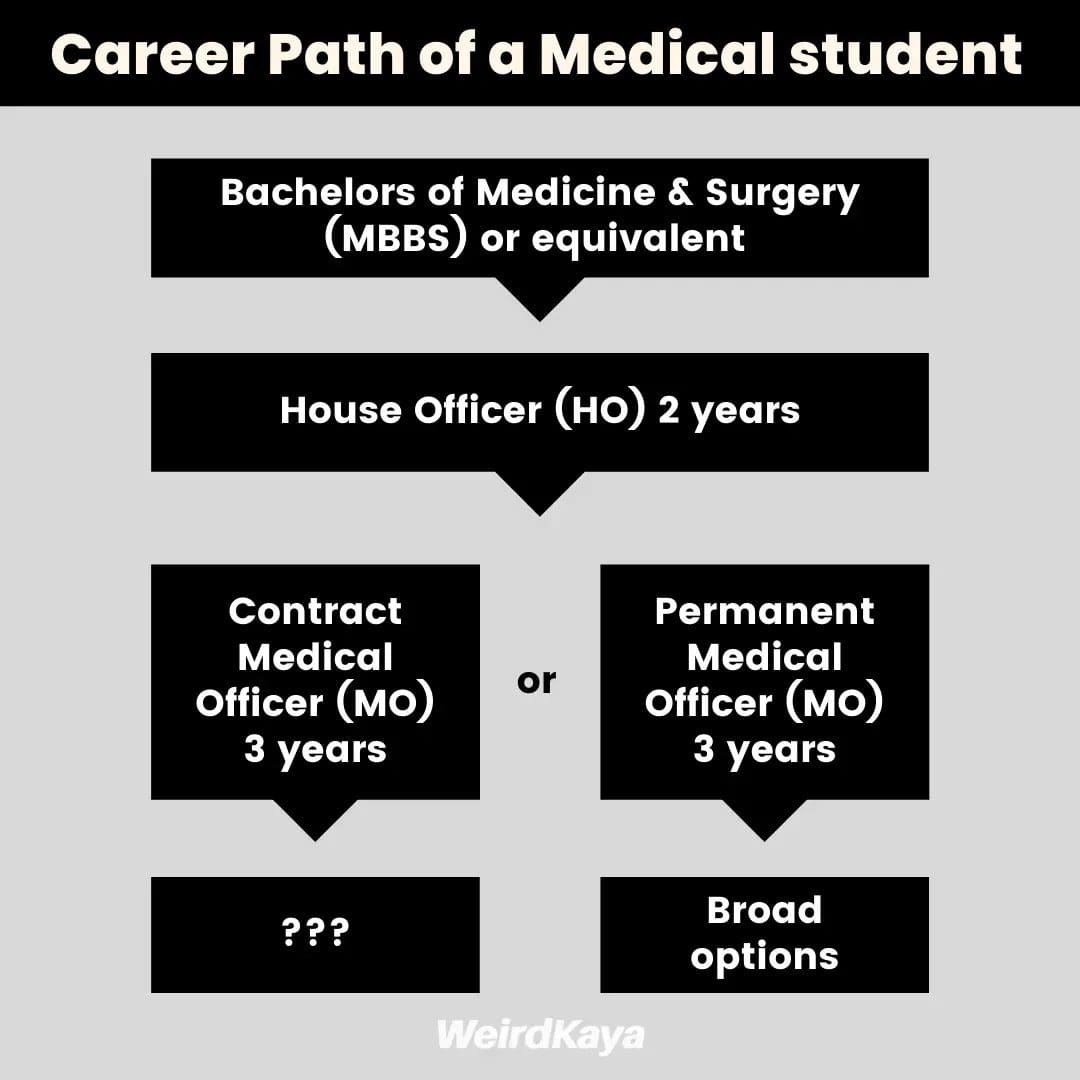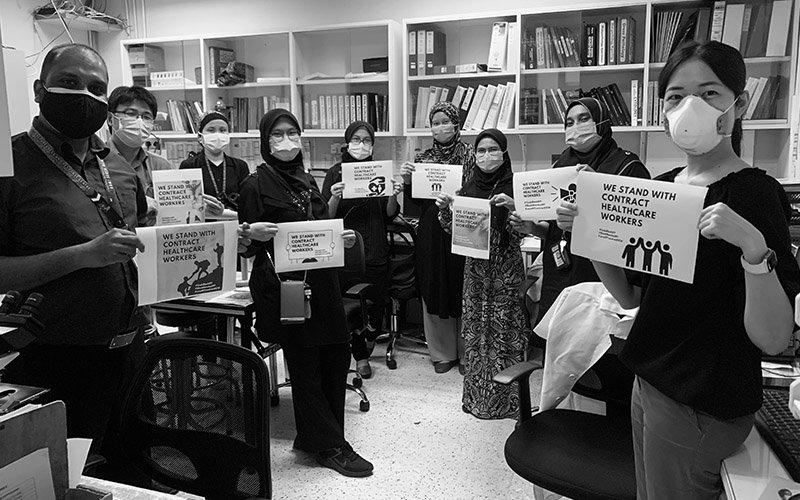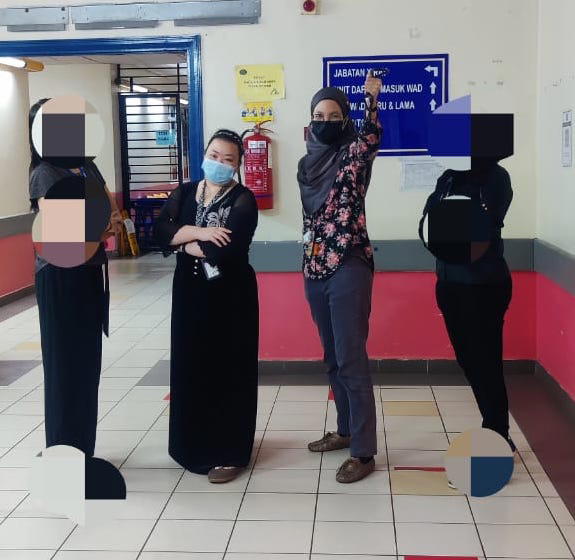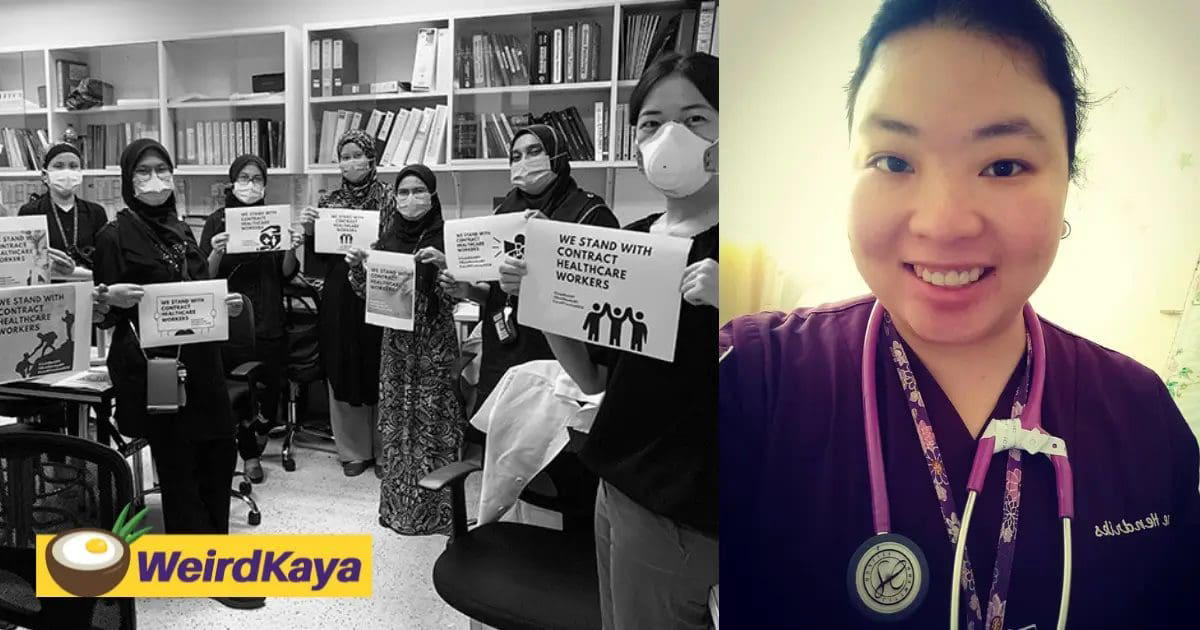If you’ve been scrolling through your feed in recent weeks, you may have come across the phrase ‘Code Black’ or ‘Black Monday’. You may have even noticed some of your friends adding a black flag to their profile picture or changing it to monochrome.
With COVID-19 crushing the country’s healthcare system, many contract MOs were called in to assist the worsening situation. However, their futures are now at stake as there is no guarantee of securing a permanent placement once their contract expires.
But before you subscribe to the idea that the futures of contract MOs don’t affect you, you might want to rethink again.
WeirdKaya recently spoke to Dr Lianne Hendriks, president of Malaysian Medics International (MMI) 2020-2021, and a 2nd-year contract MO in a tertiary KKM hospital on what Code Black is and how the issue, if left unresolved, will impact Malaysians in the long run.

Rigged from the start
Imagine this: having studied for five to six years to obtain a Bachelor of Medicine and Bachelor of Surgery (MBBS), you’re now in a three-year tenure as a contract MO after fulfilling your duties as a House Officer (HO) in a government hospital for two years.
But here’s the kicker – you’ve been informed that there may be a possibility of your contract not getting extended and worse still, not knowing whether you’ll land a permanent job at a government hospital.
Thus, you’re now faced with these options: continue being an MO at a private hospital, say ‘adios’ and serve overseas, or quit the profession altogether.
“It is heart-breaking because the goal of becoming a doctor here is to serve my own country,”
says Dr Lianne
Here’s an overview of the career paths between a permanent and contract MO:

Glaring discrepancies
According to Dr Lianne, permanent MOs often enjoy a variety of perks, whereas contract MOs are constantly left in a lurch.
“For permanent MOs, they are given a choice whether to continue their government service without fretting about contract termination. Additionally, they can pursue their interests in the form of specialisation.
“They are also entitled to apply for a study grant provided by the government to either continue their studies locally or sit for exams overseas approved by the National Specialist Register (NSR).
However, the case is strikingly different for contract MOs. Our future and career path are uncertain. We do not know what the government has planned for us.
More of all doctors need time to train in government health facilities prior to, during, and after specialising. Junior doctors being offered time-limited contracts are at the losing end as the entire duration of their contract so far is not feasible for any career progression.

The contract system was put forth in the budget 2017 on 21st October 2016 with no documents stating how it would be carried out.
“The first batch to sign it was the pioneer contract doctors who commenced their Housemanship in Dec 2016. Back then, there were many areas that were starkly different from their permanent counterparts.”
For example, a permanent MO would be promoted from UD41 to UD44 automatically after 2 years, whereas the implementation of promoting contract MO from UD41 to UD43 promotion took many years of discussion after discussion and has just been implemented this year.
But what discourages them the most are the roadblocks that hinder us from pursuing a future that could’ve been ours.
Another problem faced by Malaysia’s healthcare system is an oversupply of doctors, a predicament produced by the government’s expansion of its list of eligible universities for graduates to become HOs. In fact, this was predicted by a doctor named Pagavalan Letchumanan in 2006.

“What we lack the most in this country are specialists. And if we don’t do something about it soon, Malaysia will experience a brain drain and be forced to employ specialists from other countries.
“Therefore, it is crucial to improve the current structure by evaluating potential individuals instead of turning away talents due to this unjust contract system,” explains Dr Lianne.
She adds that ever since the change in government in the past five years, the plight of contract MOs remained unheard, resulting in the birth of Code Black.
Fighting for fairness
WeirdKaya previously published an infographic briefly explaining what the Code Black campaign aims to achieve:
Prior to that, a walk-out was originally planned by a group of doctors who were disillusioned and frustrated by the lack of response by the authorities. However, to avoid jeopardising the lives of their patients during the pandemic, the Malaysia Medical Association (MMA) came up with Code Black instead.

Dr Lianne said she hopes the government would announce an ideal and constructive decision that is fair to all parties.
“We don’t have the luxury of time to wait anymore. We need answers and we need it now.
All we’re asking for is a framework that equalises the rights of contract MOs and permanent MOs in terms of leave, salary increment and work benefits. Government bodies should learn from the UK and Australia in constructing a system with the MOs best interests in mind.
She adds that authorities should also consider allowing leeway for parallel pathways such as introducing assessments for one to become a permanent MO.
A separate initiative, dubbed as ‘Black Monday’, was launched on July 12 to silently protest these unfair conditions with medical workers turning up in black clothing at their workplace. Unfortunately, this has attracted the attention of the police, who are currently investigating the individuals behind it, triggering a public outcry.

Dr Lianne says that much remains to be done in spreading the word about the injustices within the healthcare system.
“Our healthcare workers have endlessly and tirelessly served us. Should it not be our turn to take care of them instead? Let your friends and family be aware of what’s going on.
We are not fighting for ourselves. We are fighting for the quality of healthcare in the future.

Cover Images provided by Dr Lianne & freemalaysiatoday
Editor: Raymond Chen
Proofreader: Sarah Yeoh


